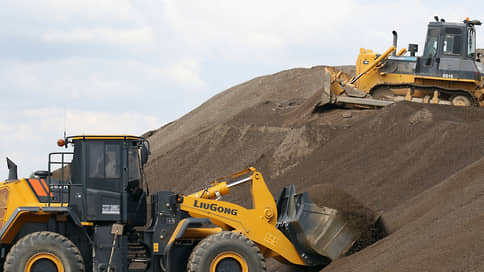The growth in sales of Russian special equipment is constrained by imported
[ad_1]

Sales and production of road construction (DST) and special equipment in the Russian Federation continue to grow. But Russian players are unhappy with the fact that, in absolute terms, shipments to the domestic market are sagging in a number of segments due to the expansion of equipment from China. Rosspetsmash proposes to significantly increase the disposal fee for special equipment in exchange for guarantees of production from local manufacturers, although not everyone on the market sees this as a mechanism for protecting the domestic market.
Sales of domestic special equipment in the first half of the year grew by 21%, to 37 billion rubles, Rosspetsmash reports (combines data from factories producing 80% of the volume of equipment produced in the Russian Federation). At the same time, the issue increased by 31%, to 44 billion rubles. In quantitative terms, in January-June, shipments of excavators (by 3.3 times), pipe-laying cranes (by 3.1 times), mini-loaders (by 25%), rollers (by 21%), loader cranes (by 21%) and front-end loaders (by 5%) increased. At the same time, sales of motor graders (by 38%), backhoe loaders (by 21%), and tracked bulldozers (by 15%) decreased in the first half of the year.
Rosspetsmash associates the decline in shipments in a number of segments with a sharp increase in imports, “which is of an aggressive nature.” “For six months, the growth of foreign deliveries to Russia in quantitative terms amounted to 76%. For such key segments as truck cranes, graders, backhoe loaders, crawler excavators, imports have grown significantly,” they say. The Ministry of Industry and Trade notes that the share of Russian products on the market for the first five months is 16%, while in the segment of motor graders – 19%, and in the segment of bulldozers – 25%. “Rosspetsmash” proposes to form “a mechanism for prompt and significant increase in recycling fees and their guaranteed gradual growth”, while “domestic producers will assume obligations to achieve targets for increasing output and market share.” In addition, they see the need for localization of foreign players in the Russian Federation, including within the framework of a special investment contract, “allowing participation of no more than one or two foreign manufacturers for each type of machine, depending on the level of development of domestic production.”
Chetra General Director Vladimir Antonov notes that the market for the main product of the plant – caterpillar industrial bulldozers – grew in January-May. He explains this by the massive import of cheap Chinese equipment, while “only Chetra” shows a positive trend among domestic players. During this period, the company increased the shipment of bulldozers by 10%. The share of Chinese bulldozer equipment on the market has almost doubled and exceeded 70%, continues Mr. Antonov. Answering the question whether it is necessary to increase the recycling fee for special equipment to protect the market, he noted: “We do not see any dependence between the recycling fee and the protection of the market.”
UMG SDM says that the company is increasing production volumes. “Presumably, the overall growth in production and sales will be up to 50%. At the moment, we are preparing for shipment a large batch of E225C crawler excavators for one of the largest companies in the country,” they say. However, the company also sees increasing competition in the market: “A fairly large number of Chinese manufacturers are entering our market today, including motor graders, loaders, excavators, front loaders.”
Dmitry Babansky from SBS Consulting notes that the market for road construction and special equipment is recovering – “construction is actively underway, this has a positive impact on the market.” He also states that the process of import substitution is underway, while foreign equipment is becoming more expensive against the backdrop of a weakening ruble, which becomes a driver of local production. At the same time, companies from China are “rather aggressively” increasing supplies, keeping prices down. The current weakening of the ruble, in his opinion, will slow down the expansion of Chinese players, but will not have a catastrophic effect on their supplies to Russia.
[ad_2]
Source link





